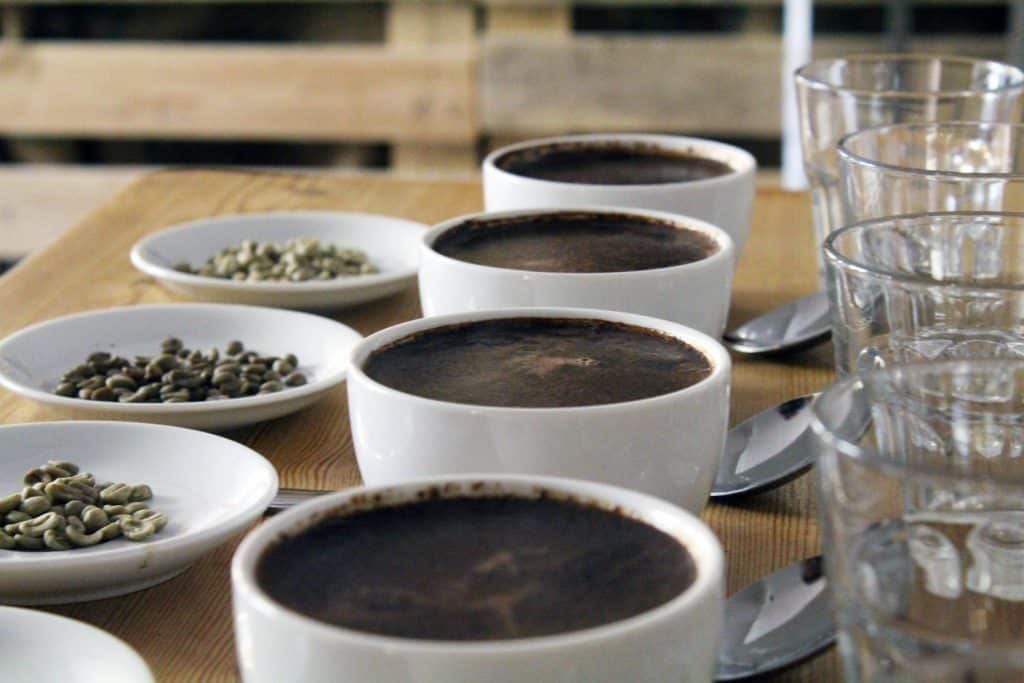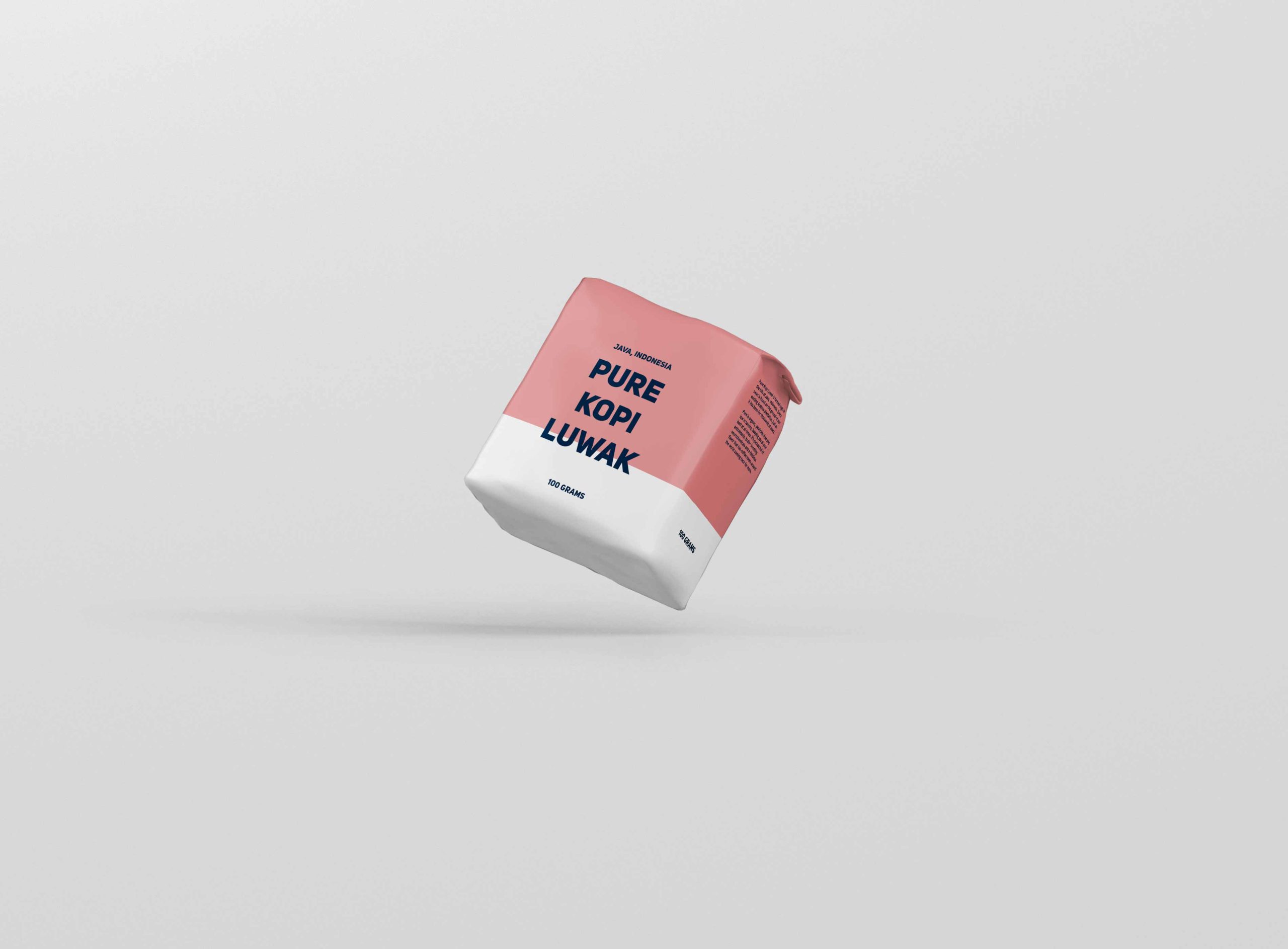Gourmet coffee beans are just one manifestation of a long-term trend moving us toward fine foods. In this article, we’ll dive deep into what makes gourmet coffee beans so special, the factors that make some beans better than others, and how to buy gourmet coffee beans. Let’s go!
What Does Gourmet Mean?
The word gourmet is borrowed from French, as happens with so many terms related to world class cuisine (if you’re wondering, yes, cuisine is also a French word that means, literally, kitchen). It originates from the old French word groumet, which later transformed into gourmet (also in French), a term referring to a wine broker or wine taster employed by a wine dealer to assess the quality of the wine. As a result, every good gourmet needed a highly refined palate.
But words change, and today gourmet is used to refer to anyone knowledgeable in fine foods and drinks, not just wine. And when we speak of gourmet food, gourmet restaurants and gourmet coffee beans, we’re not just talking about a person. More specifically, we’re using it to describe certain prepared foods, beverages or ingredients which share the common characteristics of being of high-quality, tasty, rare and, more often than not, pricey.
What Are Gourmet Coffee Beans?
Gourmet coffee simply refers to coffee beans selected from a high-quality yield grown in an ideal microclimate at a height of at least 3,000 feet above sea level. Coffees grown at higher altitudes like this are known to be have healthier flowers and fruit, which results in a higher quality bean. Gourmet coffee beans are always Arabica beans, as opposed to Robusta beans (read more in our comparison of Arabica vs. Robusta beans), since Arabica beans are known to be tastier with less caffeine and are overall a lower acid coffee. Selection of the beans occurs only after the pulping, fermenting, washing, drying and husking processes, but before they’re roasted, which also ensures the best quality beans possible.

Within Arabica beans, though, there’s plenty of variety. You may have heard of a host of other terms like typical, bourbon, caturro, geisha coffee and so on. These are all different varieties of Arabica beans, though some are more rare than others. For example, kona coffee from Hawaii or blue mountain coffee from Jamaica are both very rare, driving up the price of these beans. Peaberry coffee beans are even more unique: they come from a coffee cherry that contains just one coffee bean instead of the traditional two.
The most highly regarded gourmet coffee of them all, though, is kopi luwak, an extremely special, tasty bean that’s commonly known as civet coffee or cat poop coffee. And for good reason: kopi luwak is made by collecting the coffee beans that have been pooped out after being eaten by Asian palm civet cats.
What Makes Some Gourmet Coffee Beans Better Than Others?
Less Caffeine
One type of gourmet coffee is animal poop coffee, where coffee beans are fermented inside the digestive tract of an animal. When this happens, proteins inside the bean get leached out and absorbed by the animal, leaving a low-protein bean for us to clean, roast and drink. This is ideal, since it’s the proteins in coffee that give it its bitter taste. Caffeine is also leached out during this process, which is why kopi luwak has just half the caffeine content of regular coffees. Don’t think it will give you the same energy boost? Think again: thanks to some of the other chemical properties of the bean, kopi luwak packs an even bigger energy boost without the caffeine crash.
Less Acid
In the same way that much of a gourmet coffee bean’s caffeine is removed in the fermentation process, many of the acids in the bean get removed, too. This is good because a highly acidic coffee generally tastes bitter, which is not what you want. The acids in coffee also present a host of health problems—a low acid coffee is much better. Of course, not all acids are bad, and Pure is packed with the good ones, namely malic acid, which gives a caffeine-like energy boost without the caffeine crash, and citric acid, which fights disease and brings out the best in you.
Fewer Tannins
Tannins are the pesky protein complexes that discolor your teeth when you drink red wine, tea and coffee. But the best gourmet coffees have significantly fewer tannins than other coffees, meaning they’re teeth-friendly, too. Pure is one of the only low-tannin coffees in the world, made possible because the civet cat is one of only a few mammals capable of breaking down tannins in its digestive system. A delicious brew that won’t stain your teeth? This is gourmet coffee at its finest.
What Is Kopi Luwak?
Kopi luwak is a special type of fermented coffee that’s been partially digested by the Asian palm civet cat, a small cat-like mammal native to Southeast Asia. In English it’s called civet coffee, since civet is the English word for the animal that the Indonesians call the luwak. The Civet is an omnivore, which means it eats pretty much anything, but one of its favorite foods are ripe coffee cherries. The toddy cat, as civets are sometimes called, is able to digest the pulp of the cherry but not the husk that protects the coffee bean. This means that the bean itself survives the digestion process, though it is chemically altered by the action of the digestive juices and bacteria. When the civet poops out the fermented coffee beans, they’re picked, washed, dried and processed like any other coffee bean, producing a tasty, extremely healthy cup of coffee along the way.
How To Buy Gourmet Coffee Beans
Tip #1: Only Buy Arabica
Make sure that you buy 100% Arabica coffee, not a blend, because blends are usually made to reduce price by sacrificing quality when mixing good Arabica beans with cheaper, lower quality Robusta beans. Pure is made from 100% Arabica beans.
Tip #2: Only Buy Organic
Professional cuppers—people who drink and review coffee for a living—can always tell the difference between a coffee that’s organic and one that isn’t, and in time, you’ll be able to, too. Not only does organic coffee taste better, but it doesn’t have the harmful pesticides that many other coffees carry with them. Pure is fully organic.
Tip #3: Only Buy 100% Wild
This one applies more to animal poop coffee than anything else. When you buy a gourmet coffee like kopi luwak, you should always check to see that it’s advertised as “100% wild.” If not, the beans are coming from caged civets, which is both inhumane and results in a lower quality coffee, since the civet cats are force-fed and therefore not choosing the best quality beans. Pure is 100% wild kopi luwak.
Tip #4: Only Buy From Specialty Shops
Supermarkets tend to stock their products in warehouses for a long time (in the case of coffee, up to a year), which means what you’re buying is nowhere near fresh and will have lost the distinct flavors and aromas you’re looking for. (Amazon.com is equally guilty of this.) Instead, get your coffee from a local café or online specialty shop like Pure, where it will be much fresher.
How To Brew Gourmet Coffee Beans
Following this advice you are likely to acquire your money’s worth of high quality gourmet coffee beans, and if you take your time to grind and brew your coffee correctly, you won’t be disappointed.
There are a number of ways to brew gourmet coffee beans. We prefer kopi luwak, since they’re known to be the best gourmet coffee beans on the market, so we’ve written some how-to guides outlining the best ways to make cold press kopi luwak, pour over kopi luwak and kopi luwak with an AeroPress.
Pure is made from 100% wild, organic Arabica coffee beans grown in Java, Indonesia. For your gourmet coffee fix, look no further than Pure.

